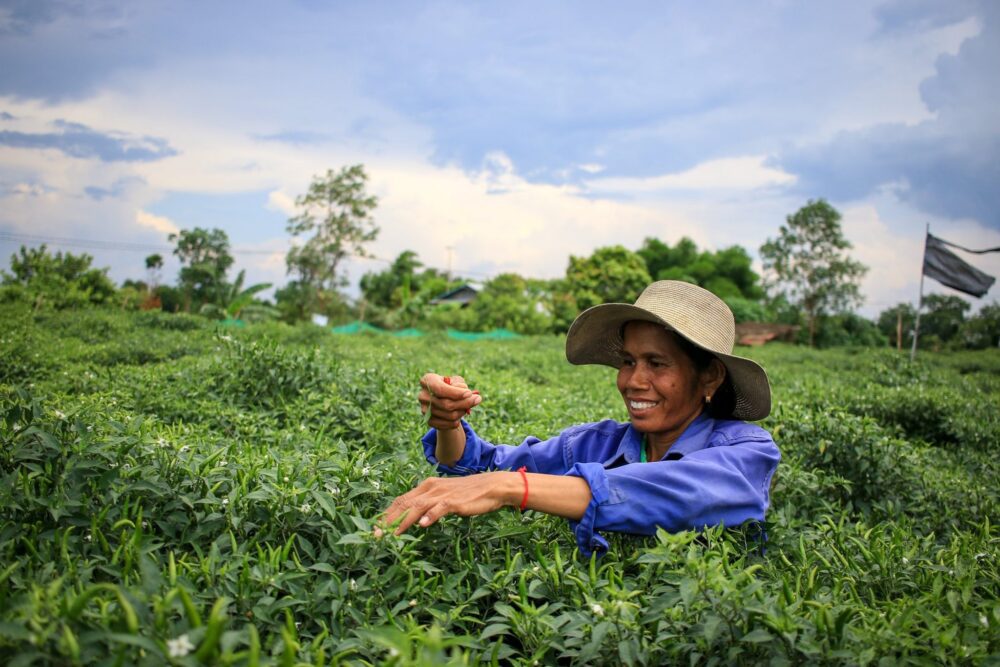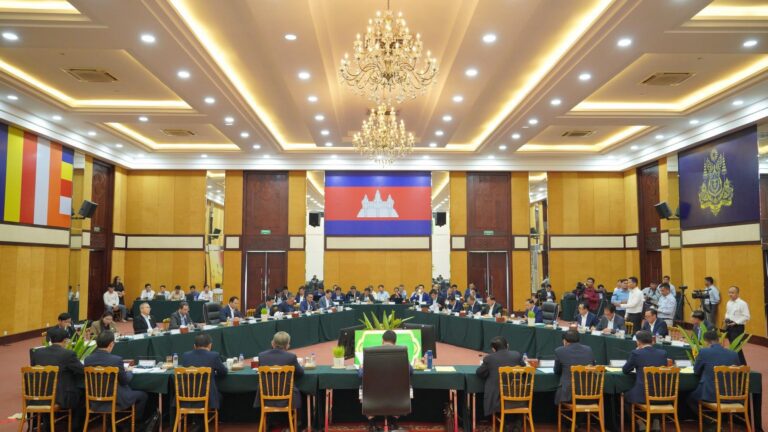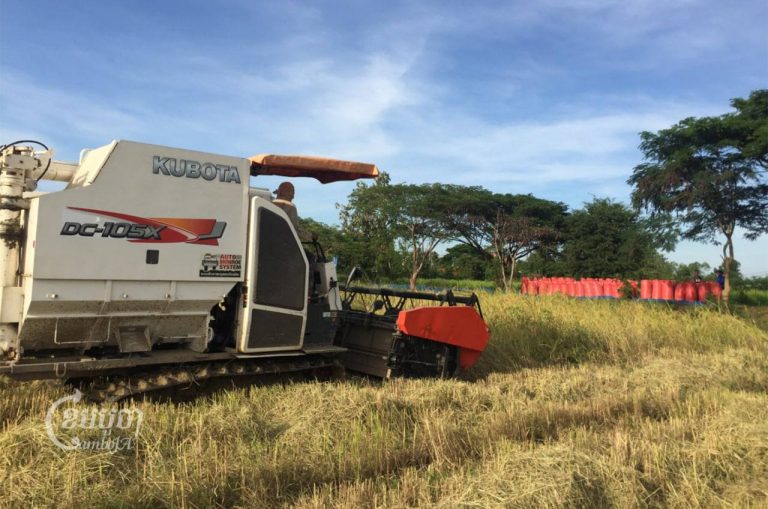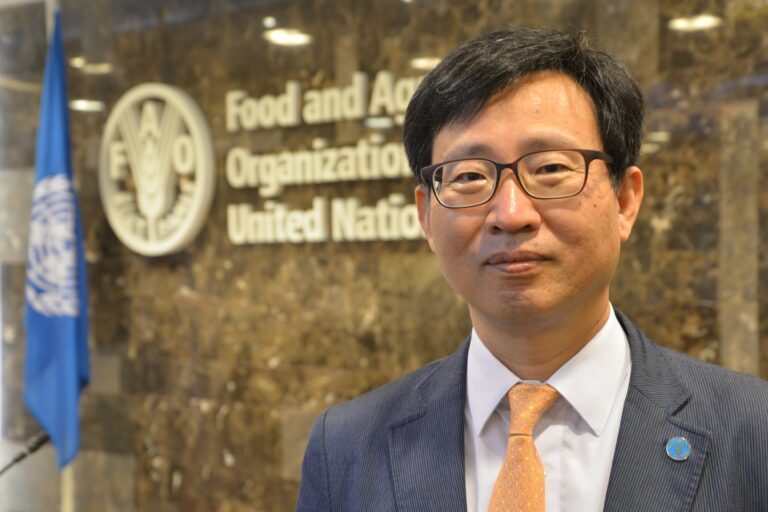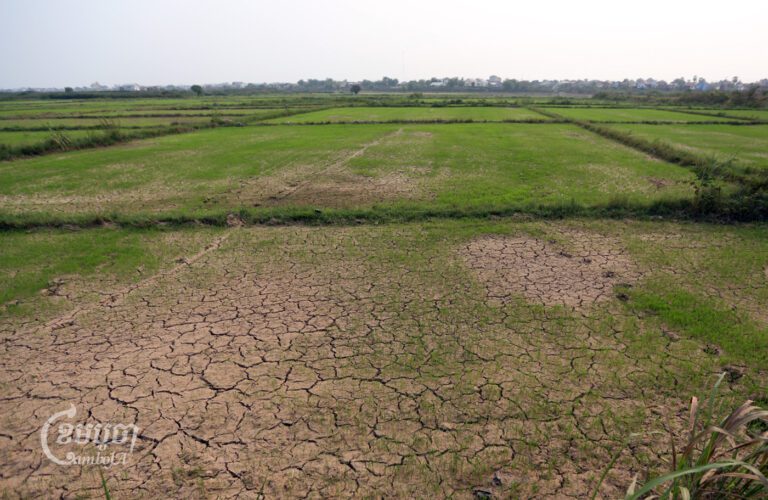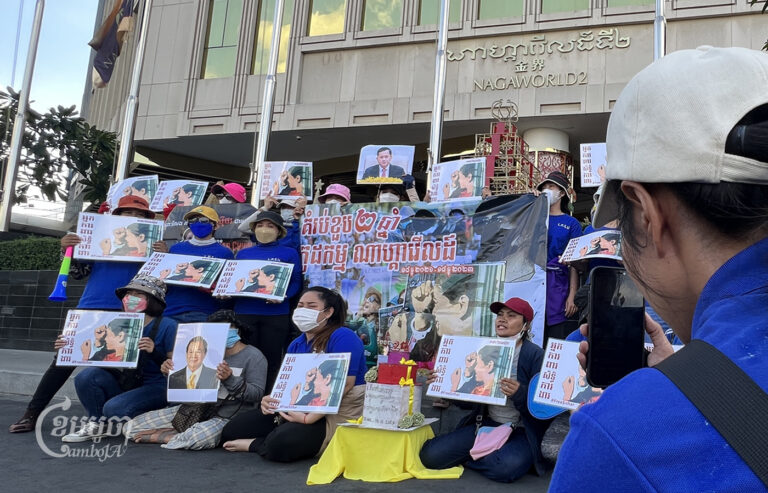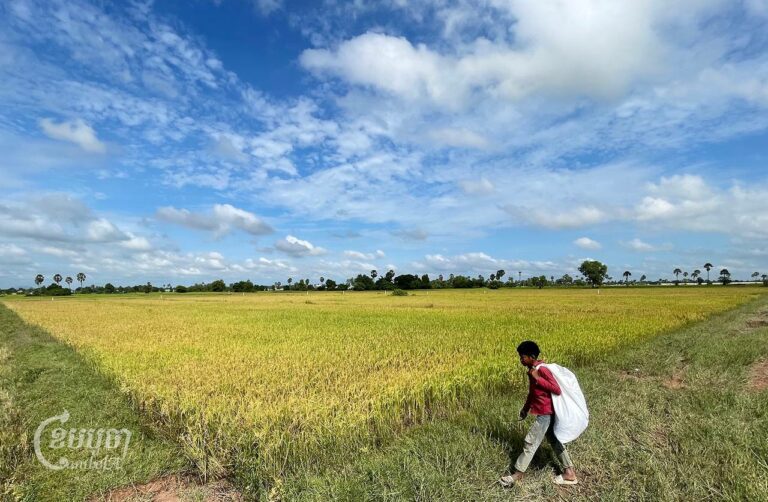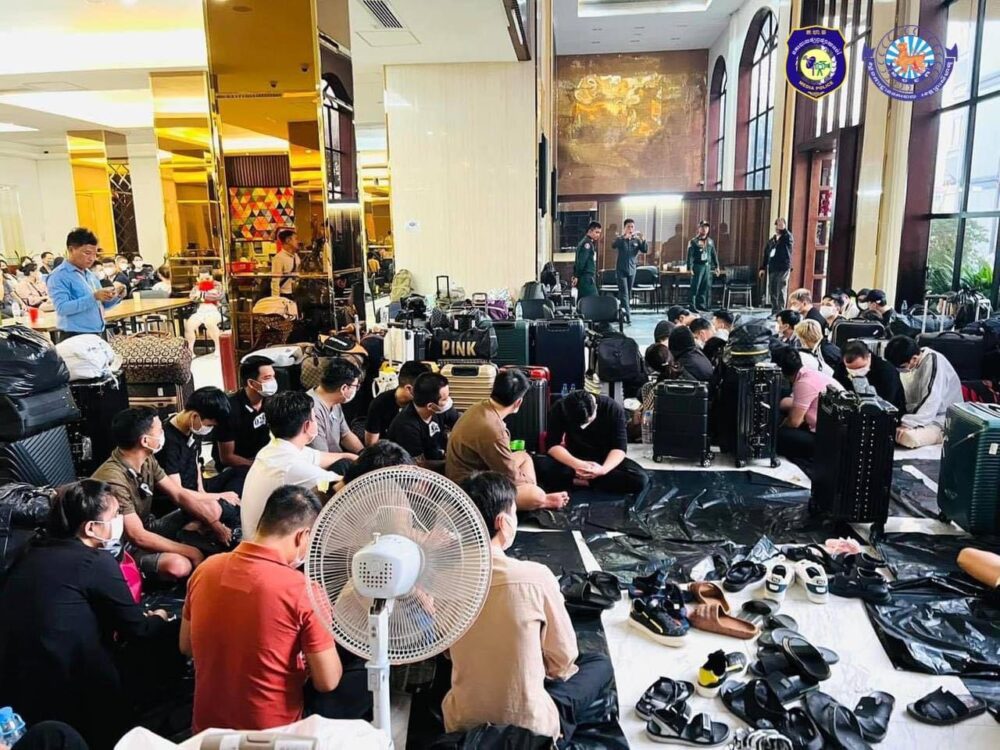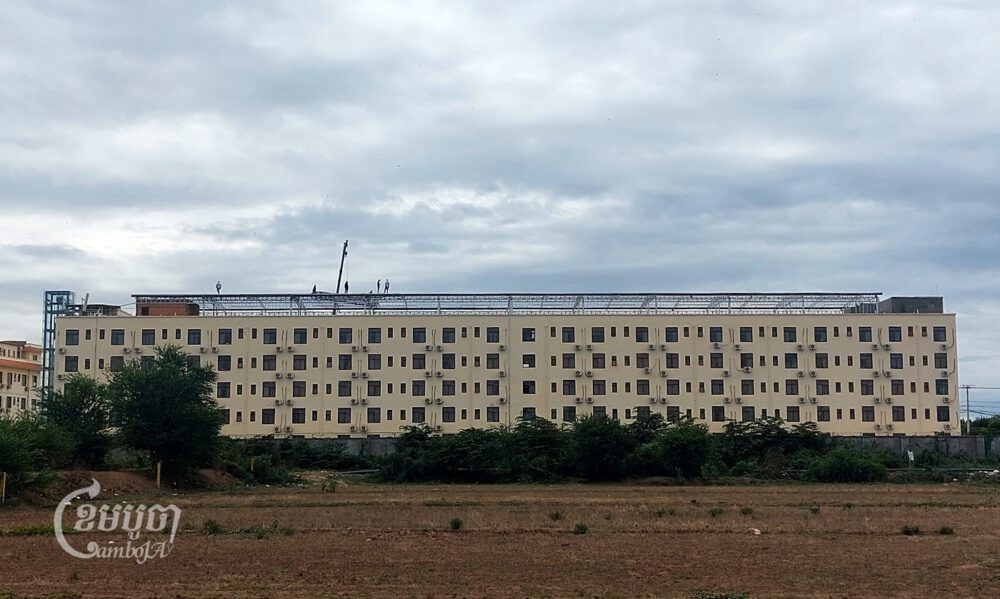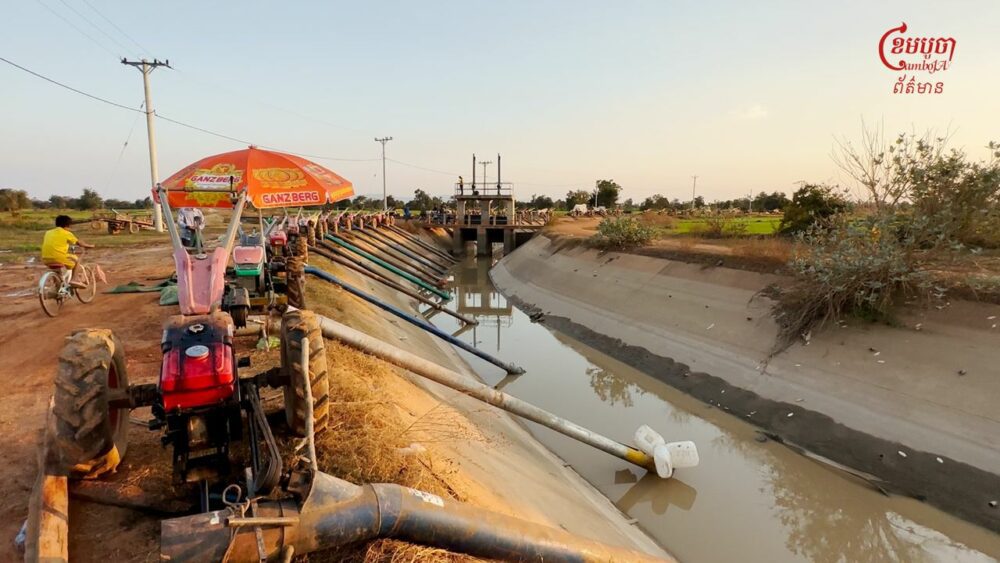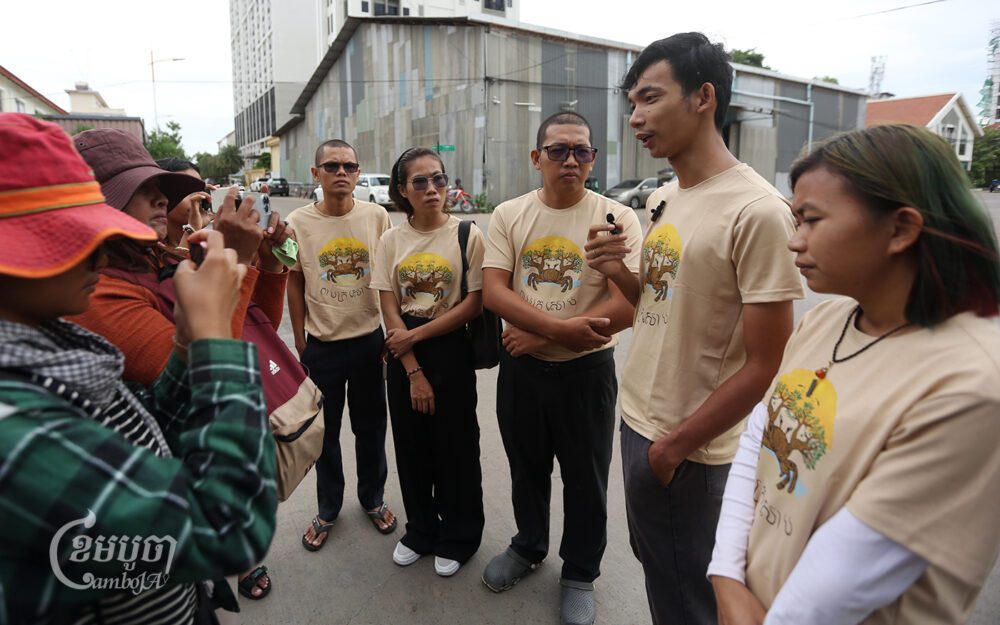A group of innovative women in the field of food and agriculture in Cambodia discussed the opportunities and challenges of establishing a network to support and promote farmer products in an event organized by the US Department of Agriculture (USDA) and the US Embassy in Cambodia.
USDA deputy secretary Torres Small underscored that women have a fundamental role in the future of agriculture whether in factories, classrooms or boardrooms.
“As leaders, it is our responsibility to make sure the next generation of female farmers have equal access to the economy, education and leadership opportunities. We [must] dismantle the unique barriers they face so they can continue to take on the challenges of meeting the world’s growing need for food, fuel and fiber,” said Torres Small.
The event mainly shared about the women’s role in agriculture, sparking new ideas on how to build the next generation of women leaders in agriculture.
Aleks Zittle, acting deputy chief of mission of the U.S Embassy in Phnom Penh, said it is important to recognize the vital role that women play in feeding communities, driving innovation and stewarding nature resources. Women are responsible for nearly half of the world’s food production and make up nearly 38 percent of all agricultural workers in crop, livestock, fisheries and forestry worldwide.
“Whether through sustainable farming practices, groundbreaking research, or entrepreneurship across all kinds of agribusiness, women have been driving forces of positive change. Despite the significant impact women have had on this industry, we must also acknowledge the challenges and barriers that many women continue to face,” Zittle said.
USAID’s Harvest III trains women farmers and entrepreneurs in business and technical skills to ensure they play an active role in sustainable agriculture value chains. Over the past two years, Harvest III has provided financial support of nearly $2.3 million to 17 women-led agribusiness, leveraging private sector investment of $8.6 million in the agriculture sector.
In addition, through women-led agribusiness partnerships, Harvest III has empowered women farmers to boost their agricultural productivity and cope with climate shocks. The project built the capacity of more than 1,050 women growers in supply chain management, climate-smart agriculture practices and agribusiness management and helped them increase their income by 24 percent.

Kim Sreyroth, Ministry of Commerce [MoC] undersecretary of state and an expert in the rice sector in Cambodia, encouraged women entrepreneurs in agriculture and food industry to adapt research and develop mindset whether in product diversification or process innovation. “It will set us apart from competition.”
She said agriculture is a challenging industry with both men and women experiencing similar difficulties. If women are included in leadership and decision-making roles, they can play a very important role in the value chain.
“Through relevant ministries including the MoC various strategies and gender policy to include women in more leadership and decision-making roles both subnational and national level have been set up,” she pointed out.
Sreyroth said women in the food and agriculture sector should establish their own agenda and “make their voices heard, efforts seen and legacies remembered”. “We, women, [should] get out of our comfort zone and take on opportunities to engage in strategic planning [by] providing input to regulations and policy designs. Don’t be afraid to take on leadership roles to continue to influence the public and industry policy to be more inclusive for women.”
Ith Kallyan, deputy chief of party for Feed Future Cambodia Harvest III, said the USAID project, which has been running for five years, has helped Cambodian farmers and entrepreneurs, especially women, to build their capacity to produce goods and compete locally.
“As the project has a $6.8 million budget, we have helped women entrepreneurs [by giving away] grants of about $2.3 million to 17 women to run their business,” he said.
The USAID expects to invest $38 million in the private sector, $15 million in agriculture-related financing and $100 million in sales at farms and firms, and create 3,200 jobs during the program.
Kallyan mentioned that Cambodia’s agricultural sector lacks processing, which does not allow it to compete with neighboring countries while lacking a budget for women to participate in this sector.
“If you want more women to be involved in this sector, you have to invest in opening [up] this industry. On the other hand, there needs to be support for development partners. Collaboration with other enterprises; it is important to be involved in this sector,” said Kallyan.
He added that through grant funding, women entrepreneurs can create jobs for farmers and jobs in the community, especially by promoting and supporting local products so that processing can be competitive locally and abroad.

Keo Yada, a fish farm owner from Siem Reap, obtained the grant from the Harvest I project. She said women can do many things but they face challenges. Sometimes women cannot achieve like men but when they do, those accomplishments are similar to men.
Based on her experience of running a fish farm, she “struggled a lot” to explore new opportunities and gain more technical knowledge because going out to learn new skills required her to leave her family behind.
“My generation is affected by language barriers,” she said, sharing that she has problems with the English language. “Writing [English] is a challenge, so to be able to communicate or work smoothly, we need to know how to use social media or the internet,” said Yada.
Soeung Rasmey, a lecturer with Royal University of Agriculture, observed that a small percentage of women studied agriculture in 2011 but there is a potential of women increasing their participation in the agricultural sector by 30%.
To encourage women to participate more, there should be more scholarship opportunities to study in this field. Women also need some encouragement from their surroundings to learn about agriculture.
“Another challenge women face in [agricultural] employment is the lack of childcare. If the workplace has a childcare center, it would motivate women to enter this field of work,” she said.
Renowned chef Ros Rotanak or better known as Chef Nak is Cambodia’s first female celebrity chef. She said her mission is to preserve and promote Cambodian cuisine on the global stage. She also celebrates Khmer culture through food.
But to accomplish those goals, she also needs her family’s support system as well as knowledge.
“It should start from today. Although our voice today is not yet heard, it is included. Of course it is not easy but I am sure that nothing people provide us [comes] easily. If we get something easily, then it is nothing,” said Chef Nak.
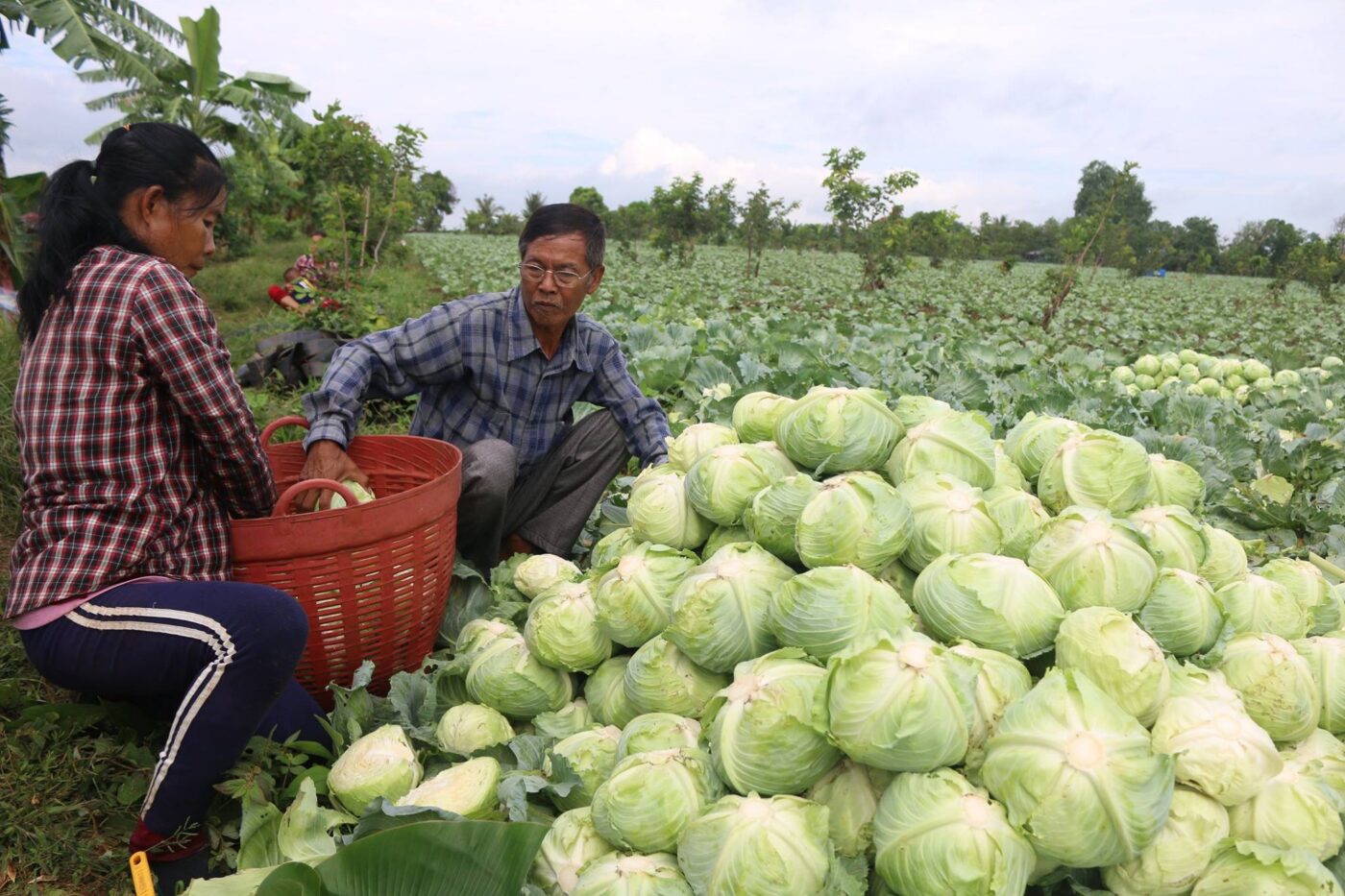
Through USDA’s support, the World Food Program has implemented Home-Grown School Feeding to provide nutritious meals to more than 1,000 schools in Cambodia, benefiting thousands of young students (49% of whom are girls). The program seeks out local female suppliers to source its food. In the current school year (2023-24), a total of 497 suppliers/farmers have been engaged as suppliers with 323 or 64% of them being women.
Harvest III, which is being rolled out nationwide, includes grains, fish and other products besides fruits, vegetables and spices, letting farmers increase their income by getting access to equipment like greenhouses that lengthen growing seasons and improve plant quality.
Kallyan said if there is a lack of processing and raw materials exported all the time, Cambodia would lose out to neighboring countries.
Therefore, only if women have the capital to invest, they will be encouraged to participate more, even though women in the micro sector account for about 85% of the industry. He added that women need more investment capital and support from development partners.
Kallyan believed that if more women were involved in food processing and agriculture, domestic production would increase and competitive exports with neighboring countries would be possible.


